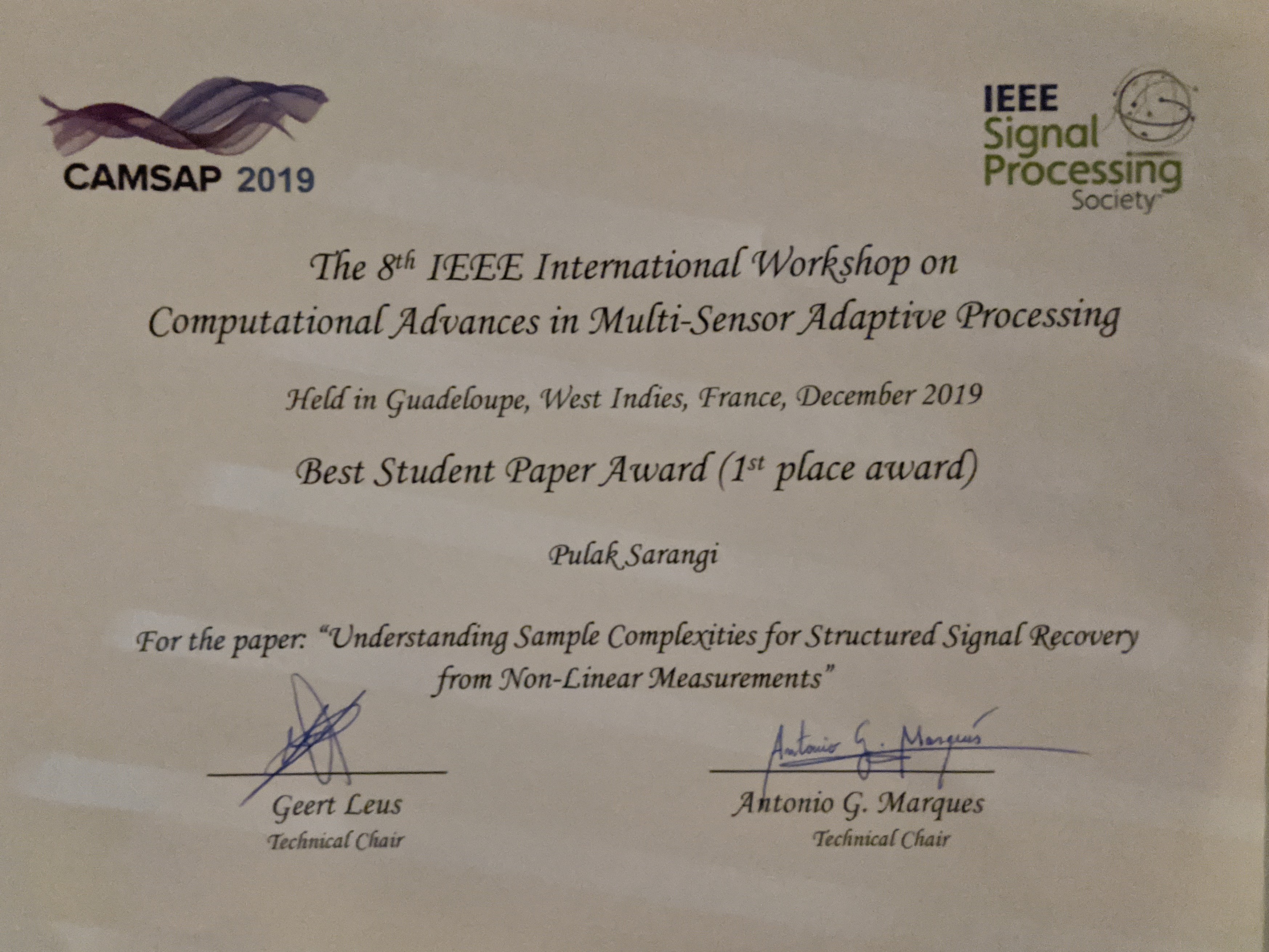
Ph.D student Pulak Sarangi (advised by Prof. Piya Pal) was awarded the Best Student Paper Award (First Position) at the 2019 IEEE International Workshop on Computational Advances in Multi-Sensor Adaptive Processing (IEEE CAMSAP), which was held in Guadalupe, Dec. 15-18, 2019. The Student paper contest had a total of 7 finalists who presented their work in front of judges. The second and third positions were awarded to Ph.D students from EPFL and the University of Michigan, Ann Arbor, respectively.
A few words about their contribution:
The paper is titled:
Pulak Sarangi, Mehmet Can Hucumenoglu, and Piya Pal "Understanding Sample Complexities for Structured Signal Recovery from Non-Linear Measurements".
This paper addresses an open question about an important non-convex inverse problem, namely, sparse phase retrieval. This problem has been extensively studied since its origin in optics, leading to several new algorithmic developments. In recent times, it has gained significant interest in the machine learning and signal processing communities, as a prototype non-convex inverse problem. One of the central questions in phase retrieval is "How to recover a sparse signal from non-linear (quadratic) measurements using a minimal number of measurements?" Current efforts reveal a quadratic barrier in sample complexity when one attempts to solve the problem using simultaneous "rank and sparsity" minimization techniques. Their approach overcomes this quadratic barrier by providing a key insight that rank minimization is actually redundant, and seeking the sparsest solution (without any rank constraints) alone suffices. They rigorously establish this claim by fully exploiting the power of certain conic constraints in an appropriate way. This theoretical result also leads to an efficient algorithm which is shown to empirically outperform existing methods.

